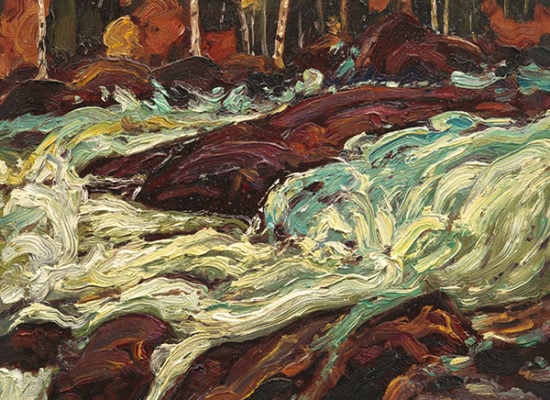Ten long-lost James Edward Hervey MacDonald (1873–1932) oil sketches have been donated to the Vancouver Art Gallery.
The modernist artist was part of the famed Group of Seven, known for its unromanticized depictions of the rugged Canadian landscape. He buried these early works, which date from roughly 1910 to 1922, in his backyard in the 1930s. Forgotten for decades, they will return to the public eye this fall in an exhibition at the museum.
In a statement, Ian Thom, a senior curator at the museum, praised the “extremely unique nature” of the gift, noting that this look at “MacDonald’s early practice lends considerable insight into the transformation of his style from more traditional depictions of the landscape to the bold, brilliantly colored landscapes he was known for as a member of the Group of Seven.”
The majority of these paperboard artworks, which remain in pristine condition, are studies for large-scale paintings, some of which now belong to major Canadian institutions, such as the National Gallery of Canada and Art Gallery of Ontario.
Preserved by cellophane and tar paper wrappings, and packed away in boxes, the paintings were unearthed in 1974, when the artist’s son, Thoreau MacDonald, sold the works to his friend Max Merkur, a Toronto-based collector. When Merkur’s widow Reta Merkur died in 2012, the couple’s sons, Ephry and Melvin Merkur, discovered the paintings, and had them authenticated by the Vancouver Art Gallery.
Thanks to the Merkur brothers’ generous donation, these important works will now finally be shown to the public, after more than 30 years underground, and another four decades in storage.
“My brother, Mel, and I are thrilled that these fabulous works of art will be displayed for the public to enjoy. My dad and mom, who spent a lifetime expanding their collection of Canadian art, surely would be delighted as well,” said Ephry Merkur in a statement.
